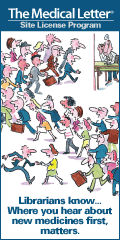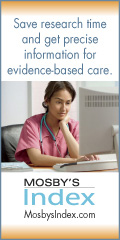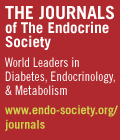

About the Medical Library Association
Overview
 Introduction
Introduction
Founded on May 2, 1898, by four librarians and four physicians, the Medical Library Association (MLA) is the second oldest special library association in the United States. The Association of Medical Librarians (as it was known until 1907) was founded “to encourage the improvement and increase of public medical libraries.”
Nearly a century later, MLA has grown to a professional organization of more than 1,200 institutions and 3,800 professionals in the health information field. We continue to assist librarians with the exchange of health sciences books and periodicals (the MLA Exchange is one of the founders’ earliest and most important projects) and to develop a variety of programs to serve the needs of health information specialists.
MLA is dedicated to improving excellence and leadership of the health information professional to foster the art and science of health information services. We further the professional development of our members through career information resources, meetings, publications, courses, awards, scholarships, and various support services. Corporate partners (part of our “Shaping Our Future” campaign) forge new links between MLA and providers of products and services to the medical and health information profession. The association also serves as an advocate for the profession and for all health sciences libraries and librarians. (For more information, see MLA History and MLA Milestones.)
 Membership Categories
Membership Categories
Membership is for 12 months, beginning in January, and is structured to accommodate varying needs and professional status of a diverse field of practitioners. Categories include
- Regular Membership
- Institutional Membership
- International Membership
- Affiliate Membership
- Student Membership
 The Annual Meeting
The Annual Meeting
Attendees at MLA’s annual meeting present and discuss scholarly papers, applied research, and issues in health sciences information management. Professionals with specific interests in the field, such as informatics, come together to address topics of timely importance. Educational sessions are complemented by an exhibit featuring more than 100 vendors of related products and services.
 Sections
Sections
Twenty-three special interest sections represent MLA’s members’ varied subfields and areas of specialization, including medical informatics and consumer and patient education. Sections meet at the annual meeting and share information during the year through networking and through section newsletters. We now have several informal special interest groups, too.
 Chapters
Chapters
Fourteen geographic groups are currently affiliated with MLA. These chapters provide a vital link to the programs and services of the association, and they are open to both MLA members and nonmembers.
 Standards and Practices
Standards and Practices
MLA is committed to the development and promulgation of meaningful professional standards, a powerful force in upgrading medical library services, resources, and facilities. Platform for Change, MLA’s policy statement on knowledge and skills, was developed and distributed to library school deans, regional chapters, library associations, NLM, and more than 100 related agencies.
MLA representatives also played an active and effective role in formulating standards relating to management in the Accreditation Manual for Hospitals, published by the Joint Commission on Accreditation of Healthcare Organizations (JCAHO). MLA’s latest edition of professional guidelines for hospital librarians, Standards for Hospital Librarians, has recently been developed by the association’s Hospital Libraries Section and is now available from headquarters.
 Information Issues and Policy
Information Issues and Policy
MLA links librarians, affiliated institutions, and federal agencies, such as the National Library of Medicine (NLM). We disseminate crucial information about health sciences libraries and librarians to our membership and relevant government officials. We take public positions on federal regulations and legislation that affect the health sciences information field, and we assist librarians in their contacts with health-related government agencies and Congress. MLA also promotes the free exchange of information among health sciences libraries around the world.
 Career Information Resources
Career Information Resources
MLA helps librarians locate quality jobs and employers locate quality employees by producing and distributing information on careers in health information science, conducting salary surveys of the profession, listing employment opportunities in the MLA News and via MLANET and organizing a placement service at the annual meeting.
 Professional Credentialing
Professional Credentialing
The Academy of Health Information Professionals, established in 1989, assists librarians in defining career goals, assessing areas of professional competence, and developing a network of supportive colleagues. Admission to, advancement within, and retention by the academy is based on educational qualifications, documented knowledge in identified core areas, and professional experience.
 Continuing Education
Continuing Education
MLA has developed a variety of courses for practicing health sciences librarians, recent graduates, and other interested in information management. Courses are scheduled throughout the year and are offered during the annual meeting, at regional chapter meetings, and locally.
 Honors and Awards
Honors and Awards
Each year MLA honors individuals who have rendered distinguished service to medical libraries and have furthered the purposes of health sciences librarianship. These awards recognize significant leadership in the profession, notable developments in applied technology, superior accomplishments in research, or original contributions to literature in the field.
 Scholarships and Fellowships
Scholarships and Fellowships
MLA provides financial support to health sciences librarians at a variety of levels. Scholarships are awarded annually to promising candidates seeking to enter the profession; one of these scholarships is designated for a student from identified minority groups. The Thomson ISI/MLA Doctoral Fellowship provides financial aid to doctoral candidates at the dissertation stage. Grants are available to practicing health sciences librarians engaged in continuing education or research projects.
 Publications
Publications
MLA supports an extensive and expanding publications program of both serials and monographs. All voting association members receive subscriptions to the Journal of the Medical Library Association (our scholarly journal) and the MLA News. Full-length books on subjects of current and historic professional interest are available, as well as booklets on topical issues, such as the popular DocKit and BibKit series.
 Exchange
Exchange
The MLA Exchange currently offers approximately 200,000 duplicate bound and unbound journal issues annually to MLA’s institutional members. Institutional members submit lists of their duplicate journals via floppy disk, or e-mail; headquarters assembles and distributes a combined electronic list of all submissions. Institutions then select and request journals directly from other institutions, reimbursing them for postage when journals are received.
 History
History
MLA is entering its 110th year in 2008! Read a brief history of the association developed for our centennial celebration in 1998.
 Oral History Project
Oral History Project
Established in 1977, MLA's Oral History Project has conducted more than seventy-five interviews, with fifty-five transcribed and edited. A synopsis of the program and excerpts of oral histories are available on MLANET.
Medical Library Association
312.419.9094
info@mlahq.org
© 1999-2008 Medical Library Association
Send site questions/comments to systems administrator
Last Updated: 2007 November 09
www.mlanet.org/about/overview.html





